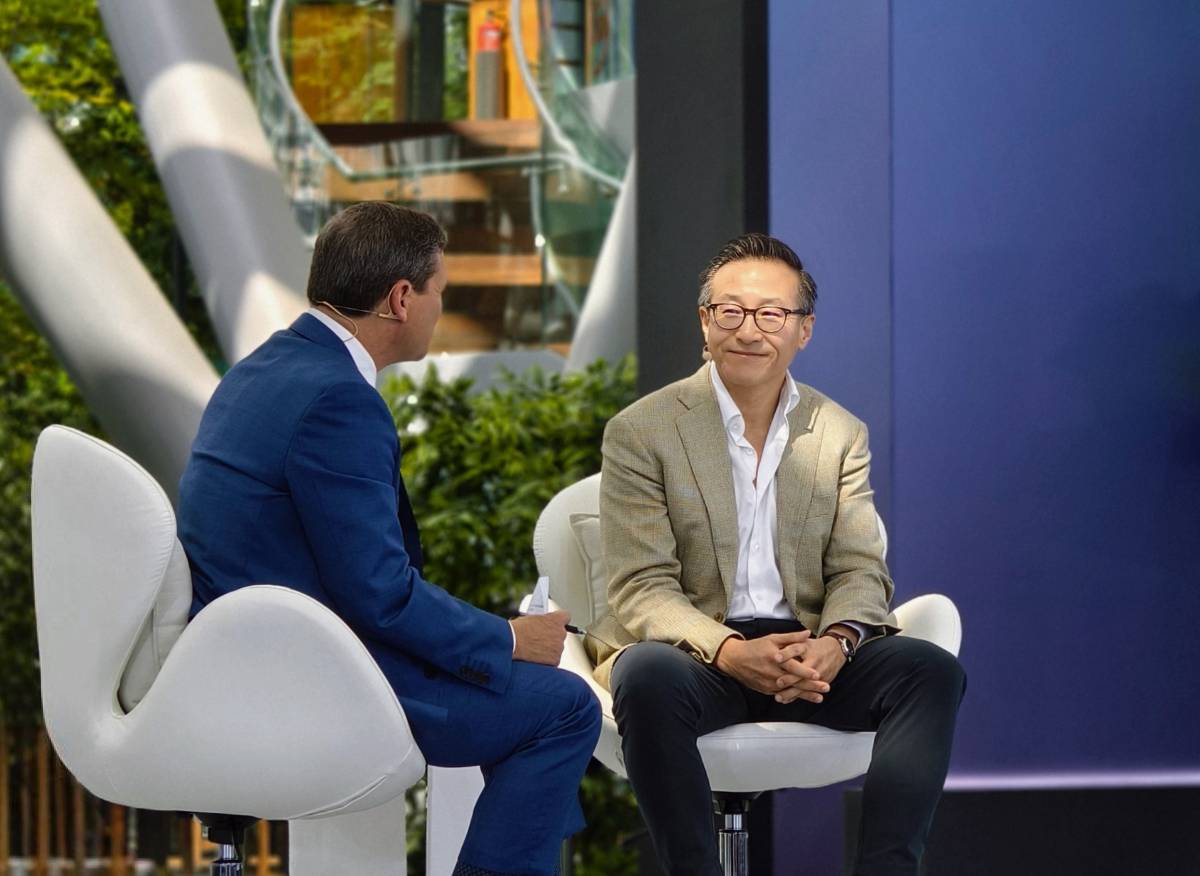
Over the last six years, Alibaba Group took a little-known Chinese folk holiday called Singles Day and turned it into a multibillion-dollar online celebration of Chinese consumerism. Last year, Alibaba’s 11.11 Shopping Festival, which takes place every year on Nov. 11, generated $9.3 billion in GMV in just 24 hours, dwarfing Cyber Monday in the U.S.
How do you make a Chinese shopathon that is already the largest online sale in the world even bigger? Invite the rest of the world to join, said Alibaba President Michael Evans.
“Over the next decade, we plan to connect millions of businesses and serve billions of consumers around the world,” Evans said today at a kickoff event for the 2015 11.11 Global Shopping Festival, which is less than a month away. “How are we going to do that? We will leverage our existing online platforms to enable the world to sell to China, and to help China to sell to the world, ultimately bringing the world’s businesses and consumers together, making it easy to do business anywhere.”
(Readers in China can watch videos of the 11.11 event by clicking here.)
Alibaba,which runs China e-commerce marketplacesthat have367 million annual active buyers, has said before that the internationalization of its business is a priority for long-term growth. Alibaba currently takes in about 2 percent of its revenue from outside China, a number the company would like to boost over the longer term.
With the Chinese middle class expected to reach 500 million in the next decade from a base of roughly 300 million today, the opportunity is compelling for Alibaba as well as international retailers. China’s leaders want consumer spending to contribute a larger share to the country’s GDP, and “we know that this middle class consumer wants authentic, high-quality international products,” Evan said, adding that by 2020, “China is expected to be the world’s largest e-commerce market for imported goods.”
Speaking publicly for the first time since being named Alibaba’s president and head of international operations, Evans said the company plans to push its globalization plans not only by encouraging more international merchants to sell to China during the 11.11 festival, but also by expanding its physical presence in the key markets of Europe, the U.S., Asia and Australia. “For example, we’re opening offices in Italy, France and Germany in the coming months,” he said, while stepping up business activities in the U.K. In addition to recruiting merchants, Alibaba has been partnering with government agencies to facilitate the import of goods directly to Chinese consumers.
These efforts include the opening of a dozen online “pavilions” featuring regional specialty products on Alibaba’s Tmall Global marketplace. During this year’s 11.11 festival, Alibaba is also giving Chinese consumers a chance to purchase fresh foods ordered directly from farmers and fishermen worldwide. Underscoring the internationalization of the festival, the kickoff event included representatives of more than 39 countries, more than 40 international brands, and nearly 30 fresh food associations from around the world. “Many more will participate in 11.11,” Evans said.
During the sale last year, consumers from 217 countries and regions were able to purchase more than 1 million products available on Alibaba platforms.
The scale of the festival—some 27,000 merchants joined last year and shoppers placed 278 million orders in the 24-hour period—is a potent demonstration of Alibaba’s development ofthe e-commerce infrastructure to foster large-scalecross-border trade. Alibaba is offering Western merchants services that extend beyond virtual shelf space on Alibaba’s major sales platforms, Taobao Marketplace and Tmall. These services include digital marketing, international delivery services, cloud services, big-data market analytics and others, all aimed at helping vendors engage directly with China’s consumers.
“Only Alibaba can deliver a comprehensive e-commerce experience at the scale seen on 11.11, the 24-hour period when the world gets a glimpse into our unmatched infrastrucure,” saidAlibaba CEO Daniel Zhang, who created the first 11.11 sales event in 2009 when he was leading Tmall.
Zhang, who spoke at thekickoff,added that 11.11 has evolved from a marketing event for online shopping into “a global phenomenon that involves consumers in China and around the world.” In addition to globalization, Zhang added that this year, Alibaba is using the festival to spotlight its advanced logistics networks capable of delivering merchandise ordered online throughout much of China in a few days; its mobile e-commerce capability (during last year’s 11.11 festival, GMV for transactionscompleted via mobile devices represented 42.6 percent of total GMV); and O2O e-commerce involving local services and major partners with major brick-and-mortar operations such as Suning, the giant Chinese electronics retailer in which Alibaba recently invested $4.63 billion.
Prior to 11.11, Alibaba has been aggressively recruiting well-known international brands; this year brands selling to Chinese consumers during the 11.11 festival include Costco, Disney, LG, Fisher-Price, Lego, MetroAG, and Sainsbury’s.
Based on Alibaba data on Chinese consumer spending habits and demands, Evans said, top-selling international product categories include baby and maternity products, apparel; cosmetics; electronics and home appliances; health and nutrition; grocery and fresh foods such as Washington State apples, California wine, and seafood from Ireland.
Alibaba’s international marketplaces, led by AliExpress, will also be promoting sales by Chinese merchants to consumers all over the world. “We expect that buyers from nearly every country in the world will make purchases on our platform during the Global Shopping Festival,” Evans said. Some of the heaviest buying activity is expected to come from online shoppers in the U.S., Russia, Spain, the UK, France, Brazil and Israel.
Alibaba is a “gateway for Chinese businesses to sell their products to international consumers and for international brands and retailers to sell their products to Chinese consumers,” Evans said.
Spending by Chinese shoppers, however, will remain the festival’s main engine. Closing the kickoff event today, Alibaba Executive Chairman Jack Ma said before the 11.11 event last year, the prime minister of Canada asked him how his country could join the sale.
“What do you have to sell?” Ma asked. “Lobsters” was the reply. Alibaba teamed up with Canada’s seafood industry and “on that day alone we sold close to 100,000 lobsters,” Ma said.
As China’s middle class grows to half a billion people in the coming 10 to 15 years, a market that would be three times that of the U.S., the “potential is huge,” Ma said.




